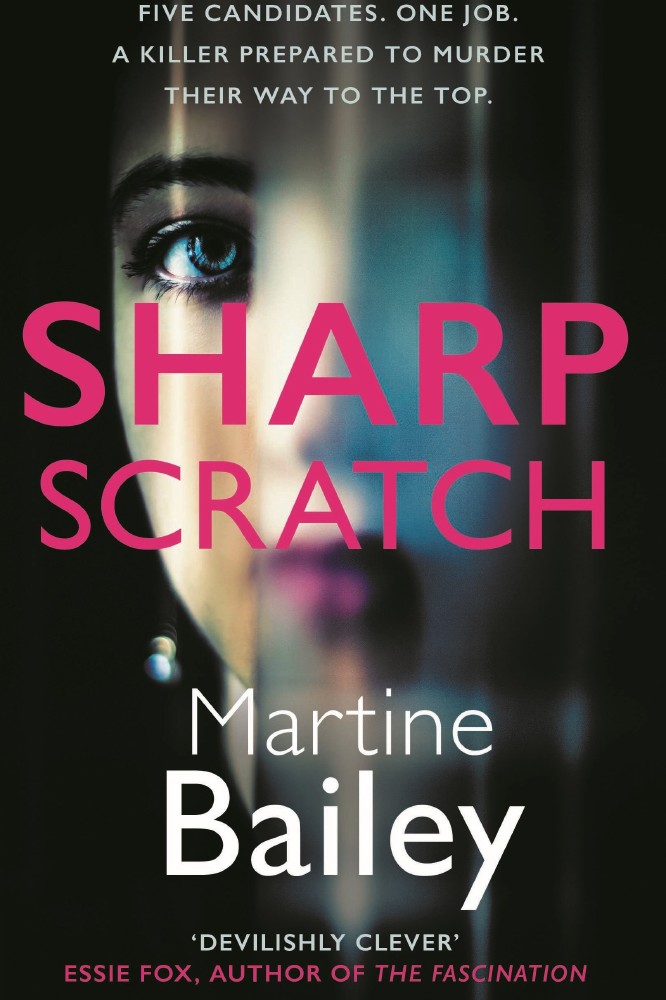I’m not surprised that Netflix’s Stranger Things is a huge success. The homage to small town America is littered with 80s nostalgia – teenage fads, cool nerdy stuff, vintage fashion and a great soundtrack. Recent UK TV dramas following the same zeitgeist include The Gold, shedding light on gangland crime, and The Long Shadow, revisiting victims of murder. Here are five reasons why the decade of Margaret Thatcher and Michael Jackson are so fascinating to revisit — and in my case, write about.

Martine Bailey
Cheap and chummy
In 1983, taxes were high and wages low, with an average salary of £8,528 p.a., but pubs were often packed. Beer was 60p a pint while a glass of wine set you back just 55p. The fog of cigarette smoke (twenty for £1) was brightened by generous state subsidies and cheap housing. Student tuition fees were paid by local councils alongside a maintenance grant of up to £1,430 p.a, as a non-repayable grant, not a loan. Home technology was in its infancy, mostly providing fun toys such as the Walkman cassette player and rented VHS video recorders to tape your favourite acts from Top of the Pops.
The era reads as our own, but communicating by letter (12p a stamp) or public phone boxes instead of mobiles. And without our phone screens there was more time for books, live music and conversation lasting into the night, earnestly putting the world to rights.
Psychological shifts
I was a single mum and bass player on the Manchester scene when I got a job as a personnel officer in the NHS. One day at work a chief nurse asked me if a personality test could catch a malevolent personality. Over the years the question haunted me and in Sharp Scratch I created Lorraine Quick, the lead character who returns from her psychometrics training in Oxford to discover a hidden killer has struck at her workplace. To Lorraine’s dismay, the key suspects are the management team she is about to test for a new top job.
The 80s abound with psychological discoveries. Forensic psychologist David Hare produced his Psychopathy Checklist to assess those with a controversial mental disorder characterized by callous self-centredness and a remorseless use of others. Detective Diaz soon spots the parallels between Lorraine’s tests and the offender profiling he’s discovered in the FBI’s Bulletins, some penned by John Douglas of the Mindhunter book and Netflix series fame.
To give a taste of the era, Sharp Scratch contains sixty simplified personality test questions to head up each chapter, though I should add that outside of a novel no test can perfectly predict future performance.
Best soundtrack
I set Sharp Scratch in 1983, a year when we were treated to arguably the best ever bands on Top of the Pops: Echo and the Bunnymen, Eurythmics, David Bowie, the Cure, Culture Club, and Siouxie and the Banshees. In Manchester, Steven Morrissey had formed The Smiths and Mick Hucknall had created Simply Red, while New Order had emerged from Joy Division to chart with Blue Monday, the bestselling 12-inch of all time. I had been drawn to the vibrant punk scene in the 70s and, thanks to the Manchester Musicians’ Collective, started performing in all-women bands at ramshackle venues like the first Factory Nights. Though I have never regretted being a tiny part of an exciting moment in Manchester’s musical history, the music industry was – and still is – glaringly misogynistic.
Fashion
There was more to 80s fashion than primary colours and padded shoulders. Punk had taught my art college sister and me to rip up and revamp our fashion, from our mum’s yoga leotard and fishnets to pink plastic raincoats. Charity shops were treasure troves of discarded finery: glass-eyed fox furs, jet-beaded mourning costumes and men’s pin-striped jackets for an androgynous look worn with a leather tie or trilby hat. As a low-paid personnel officer, my lead character Lorraine is mocked for wearing Oxfam cast-offs at work, as new temptations arrive on the high street.
Hey there, pretty face
Forgetting my anti-capitalist principles, I signed up for my first ever store card from Richard Shops to buy a tight black skirt suit that I wore for work meetings requiring extra gravitas – such as sacking hospital staff for misconduct. The Richard Shops jingle, as a friend recently reminded me, was all about women’s pretty faces making the world a prettier place!
Yes, feminism back then was not quite as we know it. True, the women at Greenham Common were protesting against nuclear missiles to make the world a safer place for ourselves and our children. Yet with hindsight, the casual sexism and racism of the day was incredible. On a night out it was common to be groped while waiting at a bar, and not uncommon to hear of women being seriously molested or raped. Women were still dismissed as ‘birds’, and currently unimaginable language was used around race, gender and disability. In a notorious rape trial in Cambridge, a male judge pronounced that, ‘Women who say no do not always mean no.’
Like any historical era, the 80s were contradictory, the best and worst of times, even in the run-down north. Yet there was something more I took from those dark times. I owe a deep debt to my training in psychometric testing because I did find it useful in forging a path into my future. I had an epiphany when a psychometrics test confirmed that my own personality was not well-matched to work in personnel - but primarily suited to be a writer.
The Book

SHARP SCRATCH
The first in a chilling new crime fiction series that draws upon Martine Bailey’s experience conducting psychometric testing during her career in the NHS, which included assessing staff for Ashworth high-security psychiatric hospital.
The genesis of Sharp Scratch emerged out of a question that the author was asked by a Chief Nurse: could a multiple murderer such as Beverley Allit, or more recently Lucy Letby, have been identified as dangerous by a psychometric test?
The novel combines the tension of Jack Jordan’s Do No Harm with the atmosphere of David Peace’s Red Riding Quartet.
Five candidates. One job. A killer prepared to murder their way to the top.
Salford, 1983. Lorraine Quick is a single mother, a member of a band going nowhere fast, and personnel officer at the grim Memorial Hospital.
A new general manager position is being introduced, and Lorraine’s recent training in the cutting-edge science of psychometric testing will be pivotal. As the profiles start to emerge, a chilling light is cast on the candidates.
When a lethal dose of anaesthetic is deliberately substituted for a flu vaccine, and a second suspicious death quickly follows, it’s clear a killer is at work in the hospital. Can Lorraine’s personality tests lead her to the murderer?
Sharp Scratch publishes on the 22nd February 2024 ISBN 9780749030841
Author Bio

MARTINE BAILEY studied English Literature while playing in bands on the Manchester music scene. She qualified in psychometric testing and over her career, assessed staff for a top security psychiatric hospital and dealt with cases of sexual abuse and violence. Having writen historical crime ficton, including The Almanack and The Prophet, Bailey’s writing has jumped to a modern setting. She lives in Chester, UK.

